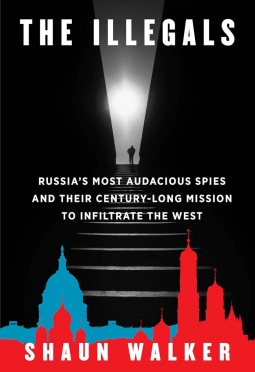On May 19, 1951 two officials of the British Foreign Office were reported as missing; their disappearance raised many eyebrows within the intelligence community.
One of the men, Donald MacLean (1913 - 1983) had been working in various trusted positions within the British diplomatic corps since 1934, but his handlers in Moscow called him "Homer". The other Englishman, Guy Burgess (1911 - 1963) began working for the Foreign Office in 1944; the KGB called him "Hicks". The two men were members of a spy ring that would soon be known as "the Cambridge Four" (the other two being Kim Philby and Anthony Blunt. In later years a fifth spy would surface: Roland Perry. All of them were recruited by the Soviets while attending Cambridge University in the 1930s).
- from Amazon:

The information that was fed to the journalist who wrote the attached article was clearly meant to disguise the fact that all the Western intelligence agencies were totally freaking out.
In 1949 there still existed such hope and optimism for the future of the United Nations as a force for good in the world - and a profound disappointment can clearly be sensed in this writer's voice as you read this column that reported as to how the Soviets were manipulating the organization to benefit their espionage efforts.
CLICK HERE to read about the beautiful "Blonde Battalions" who spied for the Nazis...
Click here to read about the blackmail and extortion tactics that American Communists used in Hollywood during the Great Depression...
Stalin's deep fear of traitors and moles was not simply confined to the Soviet Union - it spread throughout every branch of his embassies as well. This article pertains to the Soviet spies who worked in Washington - the ones who spied on the Soviet diplomatic corps:
"When a new [diplomat arrives from Moscow] he soon learns that the Ambassador is not the real boss. One outside diplomat who has contacts with the Embassy declares: 'Always, there is someone in the Embassy whom the others fear. They live in terror of him, for he is the real leader... I have seen Soviet officials actually tremble when he comes into the room.'"
A 1951 article about the young CIA can be read by clicking here...
"The CIA is a young and relatively untested child in the strange world of intelligence. The enemy dourly accuses it of 'Black Warfare.' But there is definite proof of its success. Radio Moscow never misses a chance to scream shrilly of 'the extended spy network of the Wall Street mercenaries.'"
"The CIA formula avoids the fog of rumor that fills any world capital, and goes straight to the hard facts of the enemy's economy, production, transportation, raw materials and manpower. A modern war must be organized, much of it in the open, long in advance. Guns must be manufactured; munitions, food, and raw materials stockpiled; railways and roads expanded and soldiers trained. The allocation of scarce Soviet-controlled steel is far more important than the minutes of the Politburo."
In 1958, Fidel Castro wrote an article for an American magazine in which he thoroughly lied about his intentions; click here to read it. |